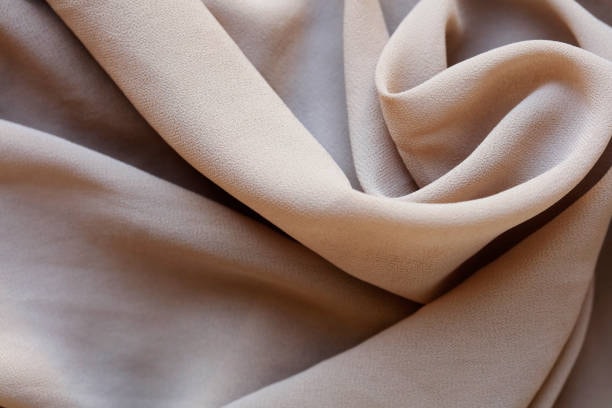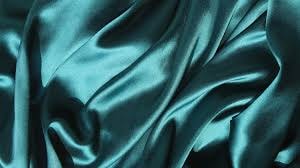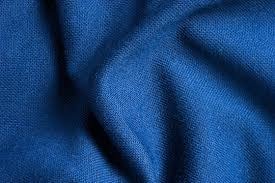
Fashion and design practitioners have been drawn to Chiffon fabric since its lightweight elegance made it a trendy material. Many individuals experience this fabric during its elegant runway movements in fashion shows while dressing in wedding gowns or functioning as summer scarves.
Users need to understand the basic composition of chiffon fabric. Designers love this popular fabric for its enduring appeal because of what makes it so exceptional.
This article evaluates the historical origins of chiffon apparel, then discusses how it is manufactured while detailing various variations and outlining complete design and treatment procedures.
This guideline serves fans interested in style declaration alongside fashion students and people making DIY creations, and those who seek both attractive beauty and stylish appearance.
What Is Chiffon?
The original use of the word chiffon derives from the French classical term meaning fabric. The delicate fabric known as chiffon maintains its floating qualities during motion because of its true-to-name characteristics, which include softness, lightness, and sheerness. Due to its structure of twisted yarns, chiffon material displays a slightly textured touch.
The high-end textile industry utilized silk chiffon material exclusively during its initial period of existence. You can now purchase chiffon fabric either as natural fabric or synthetic polymer which expands its usability.
Some of its key characteristics:
- Lightweight and breathable
- Sheer fabric and semi-transparent
- Smooth with a slightly crinkled texture
- Drapes beautifully
- Elegant and floating appearance
How Is Chiffon Made?

Regular cloth chiffon results from structured plain weaving of closely twisted yarns. The fabric gets its strength from the weaving structure but stays light and easy flowing.
Materials Used:
- Silk – The original and most luxurious
- Polyester – Durable, affordable, and easy to maintain
- Nylon – Smooth and slightly more elastic
- Cotton – Less common but breathable
The natural chiffon versions deliver silk-like touch with its organic texture but synthetic chiffon variants provide resistance to wrinkles in addition to excellent maintenance simplicity. The different fabrics provide unique benefits for different fabric projects.
Types of Chiffon Fabric
Different types exist within the embroidery material classification of chiffon fabrics. Chiffon fabric can be used in the following versions:
1. Silk Chiffon

Luxurious and naturally breathable. Silk Chiffon is best for high-end fashion.
2. Polyester Chiffon

More affordable and durable. Polyester Chiffon is ideal for everyday wear and DIY projects.
3. Stretch Chiffon

Includes a bit of spandex or elastane. Great for body-hugging silhouettes.
4. Pearl Chiffon

Slightly heavier with a glossy sheen. Often used in bridal or evening wear.
| Type | Texture | Common Uses | Pros |
|---|---|---|---|
| Silk Chiffon | Soft, airy | Luxury gowns, scarves | Elegant, breathable |
| Polyester Chiffon | Smooth, light | Every day dresses, blouses | Durable, easy to wash |
| Stretch Chiffon | Soft, elastic | Fitted dresses, tops | Flexible, comfortable |
| Pearl Chiffon | Glossy, rich | Bridal, formal wear | Shiny, drapes beautifully |
Common Uses of Chiffon
The elegant movement, combined with its lightweight nature, makes chiffon cloth suitable for a variety of designs and product applications.
- Chiffon dresses – Elegant and flowy, perfect for weddings and formal events
- Sarees and scarves – Lightweight and stylish
- Blouses and skirts – Ideal for summer wear
- Home décor – Think sheer curtains and dreamy overlays.
- Event design – Used for draping at weddings and galas
The fashion world appreciates chiffon since it generates elegant buoyancy while maintaining a light composition that dances effortlessly.
Chiffon Dress: A Fashion Staple

Few garments feel as romantic and timeless as a chiffon dress. Its soft drape and flowy silhouette make it a go-to for special occasions such as:
- Evening events
- Weddings and receptions
- Summer parties and vacations
Pairing Tips:
- A properly structured belt serves to outline your waist area.
- A slip layer serves to provide enhanced coverage in your outfit.
- The garment pairs best with a leather jacket or a long coat during chilly seasons.
- Spring would be the perfect time to wear pastel colors, along with autumn requiring deep-toned clothing.
Pros and Cons of Chiffon Fabric
Advantages:
- Elegant and timeless
- Light and breathable
- Drapes beautifully
- Works well for layering
Disadvantages:
- It can be a slippery texture to sew
- Requires gentle care
- May snag or wrinkle easily
How to Care for Chiffon Fabric
You need these steps to maintain chiffon clothing quality:
Washing:
- Soft hand wash in cold water with mild detergent
- A gentle machine cycle works best for washing synthetic materials
- Avoid twisting chiffon fabric, since gentle pressing gets rid of excess water better
Ironing:
- Use low heat
- Place a cloth between the iron and the fabric.
- Damp chiffon works best during ironing.
Storage:
- Hang garments to avoid wrinkles.
- Store away from direct sunlight.
- Put foam hangers close to sensitive clothing to protect it.
Where to Buy Chiffon Fabric
Looking to shop for chiffon? Based in Yanmao Textile, we stock a wide selection of excellent chiffon fabrics for designers and other customers who need smooth, luxurious fabric types.
What to Look for:
- Examine if the fabric looks balanced and without thread defects.
- You can detect the difference between silk chiffon and regular chiffon through its modest weight and smooth texture.
- Examine the inside surface of the garments to confirm it feels pleasant against the skin.
Online shopping gives buyers more range, but feeling the fabric is possible only during physical store visits. For designers and students, obtaining samples from fabric suppliers first makes good business sense.
Final Thoughts: Why Chiffon Remains a Timeless Fabric

Chiffon fabric started in China during ancient times and has stayed beautiful and moving through all eras until today. Its flexible design, alongside its smooth texture, gives chiffon a fundamental role in any fashion enthusiast’s wardrobe.
Chiffon fabric helps designers craft dream dresses, plus users renew their outfits because it nurtures creativity in every project. Get ready to explore the beauty of chiffon fabric. Yanmao Textile offers various chiffon fabrics, including silk chiffon fabric, to help you create your dream project today.





